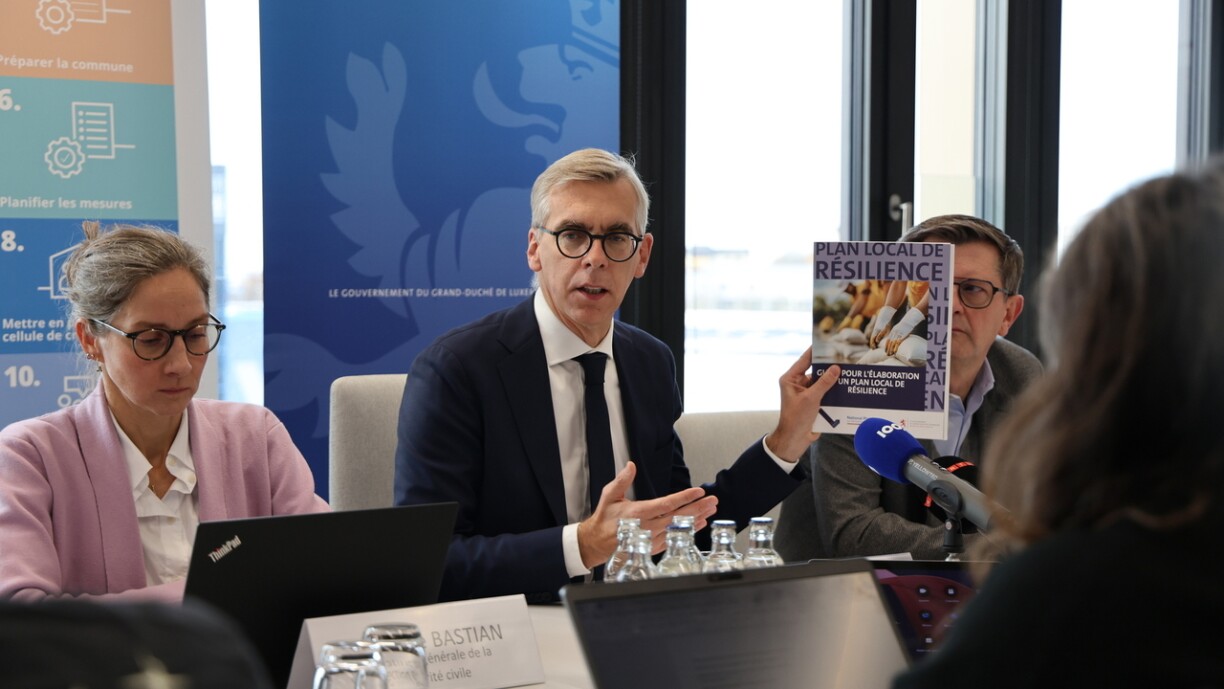
“It’s important to be prepared in such a way that one can avoid the worst,” declared Minister for Home Affairs Léon Gloden at a press conference on Thursday morning. The national resilience strategy presents a guide for municipal authorities in the event of an emergency.
Some catastrophes cannot be avoided, such as natural events, but there are ways to prepare and act preventatively, so that authorities can react quickly and efficiently and return to normal, Gloden said.
In such situations, municipalities are important stakeholders:
“The local politicians are the ones who know their municipality the best,” Gloden said. “I can say this as a former mayor. They know their people, the terrain, the potential of risks and dangers in their environment. A number of municipalities and syndicates also operate relevant national infrastructure.”
The local plan is derived from the national resilience plan and will act as a guide for local authorities.
“It offers concrete advice, such as who to contact, where is the main telephone centre, where are sandbags, and so on.”
The guide defines 13 steps. The main focus is taking stock of the situation, said Christine Bastian of the General Department of Civil Security:
“How many residents are there in the municipality? What are the risks? Are we exposed to any particular risks in this area? There are some that will affect any area, such as cyber attacks, a tornado, and so on, but some councils are near large industrial sites, for example, so that could bring different risks.”
The authorities must also check what means they have to react to a catastrophe, to identify the risks and to play out potential scenarios.
“What happens if it rains a lot in my area? Which roads are impacted first, which roads need to be closed to traffic first? What comes next? Are there retirement homes to evacuate? The guide will encourage questions and deliberations. In the pandemic, for example, we saw which services were essential, and which could be closed down, and have staff pulled into other areas to deliver the services which have to be guaranteed.”
All things considered, this is not a closed process. Every crisis delivers more experience and opportunities for learning, the minister said, which can impact both local and national strategies.